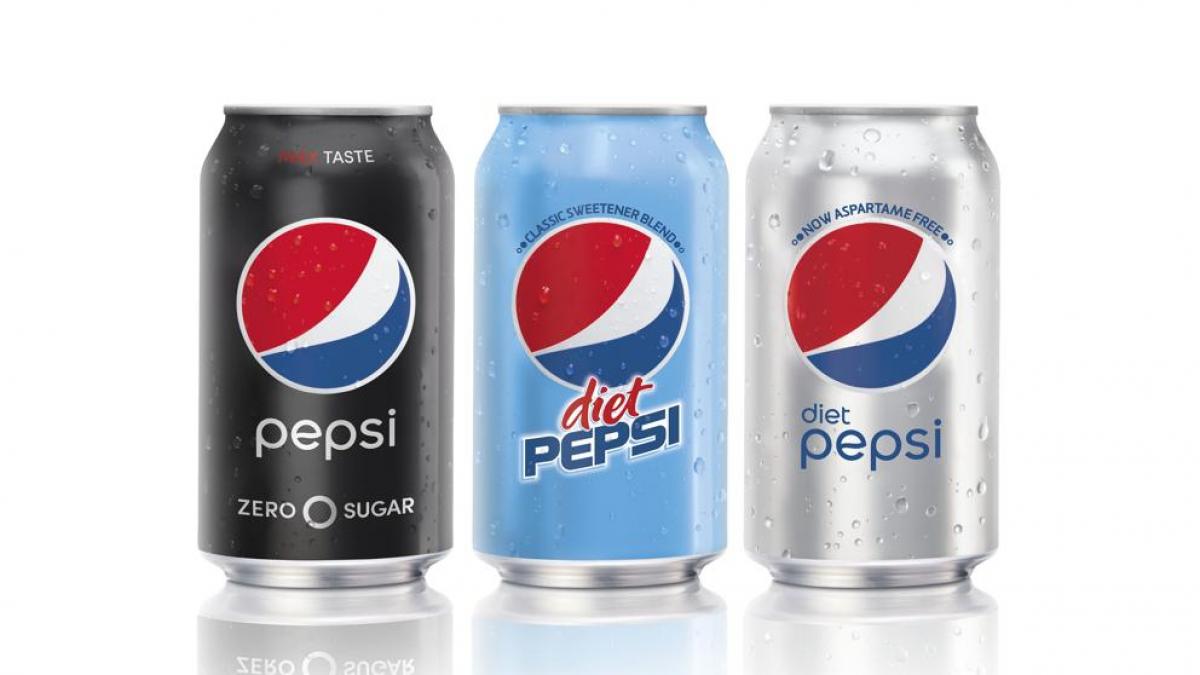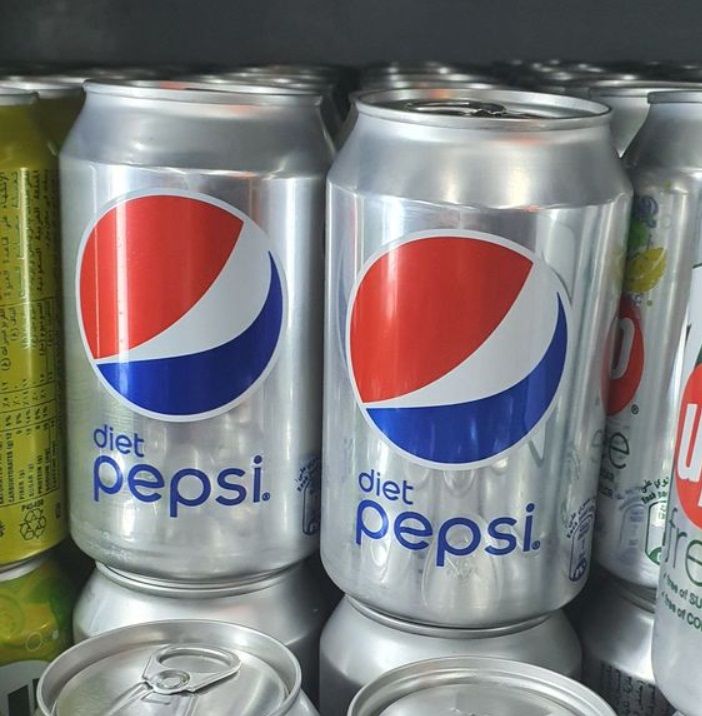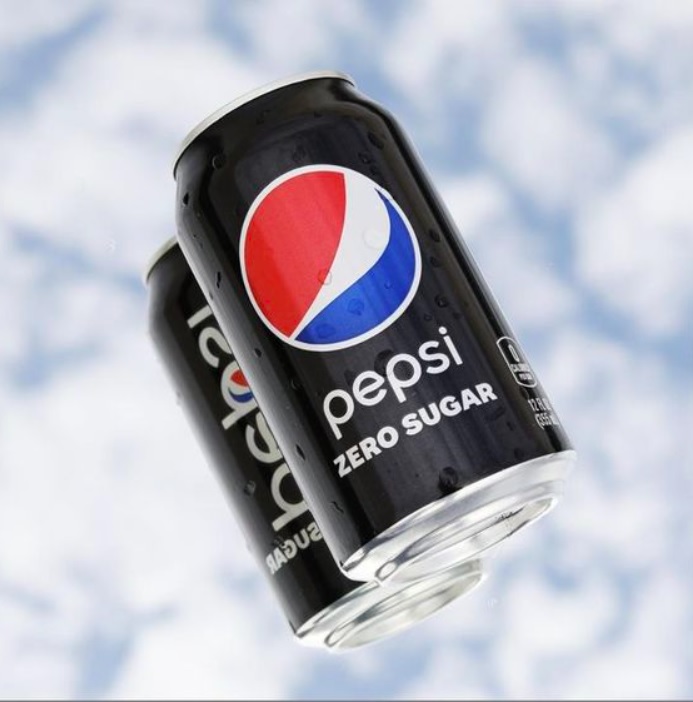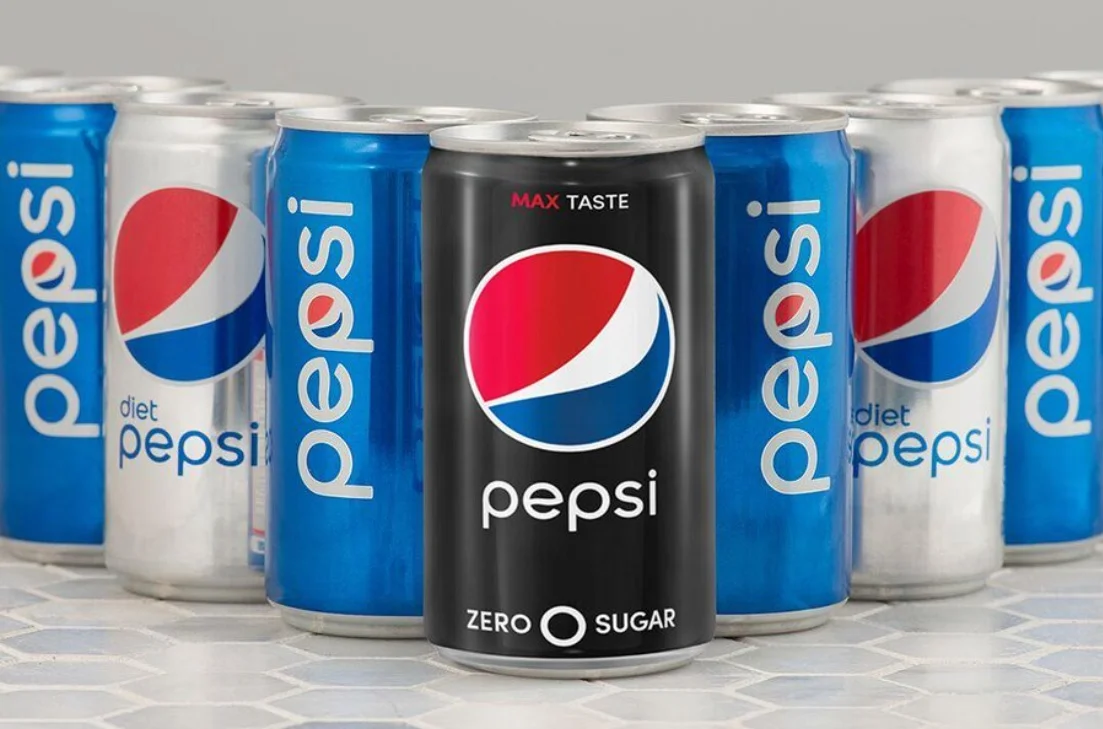Pepsi Zero and Diet Pepsi are two popular sugar-free alternatives for those who love the taste of Pepsi but want to cut back on calories and sugar. These carbonated soft drinks are specifically designed to offer a guilt-free option for people seeking a healthier beverage choice. Both beverages maintain their sweet taste through the use of artificial sweeteners, but they do have some key differences that may impact consumer preferences.
One significant difference between Pepsi Zero and Diet Pepsi is the type of sweeteners used in their formulations. Diet Pepsi is sweetened with aspartame, a low-calorie artificial sweetener also found in other diet sodas like Coca-Cola Zero Sugar and Sprite Zero. Pepsi Zero Sugar, on the other hand, uses a blend of aspartame, saccharin, and acesulfame potassium for its sweetness.
While both Pepsi Zero and Diet Pepsi aim to offer a satisfying alternative for those looking to cut back on sugar, each has its unique flavor profile and characteristics. Understanding these differences can help consumers make more informed choices when opting for a sugar-free beverage. With a growing demand for healthier alternatives, it’s essential to explore the ins and outs of these popular Pepsi products.
Reader's Roadmap
Pepsi Zero: An Overview
Pepsi Zero, also known as Pepsi Max in some regions, is a popular low-calorie soda that offers consumers a guilt-free alternative to regular Pepsi. Aiming to maintain the original taste without the luggage of extra calories and sugar, Pepsi Zero boasts zero calories, zero sugar, and zero carbs in its nutritional profile.
The ingredients in Pepsi Zero include carbonated water, caramel color, phosphoric acid, potassium benzoate, natural flavors, sucralose, and acesulfame potassium (Ace-K). Sucralose and Ace-K are artificial sweeteners that provide the desirable level of sweetness without adding calories or carbs. Sucralose, in particular, is derived from sugar, which gives Pepsi Zero a more natural taste compared to other low-calorie sodas.
Pepsi Zero’s caffeine content is another point of distinction, as it contains slightly more caffeine than its counterpart, Diet Pepsi (69mg vs 35mg per 12oz can). This higher caffeine level caters to those seeking an energy boost alongside the refreshing and familiar taste of Pepsi.
In terms of appearance, Pepsi Zero features a bold, black design which differentiates it from Diet Pepsi’s lighter, silver packaging. This visual difference is intentional, highlighting Pepsi Zero’s focus on delivering a more intense flavor and energy.
When comparing Pepsi Zero to Diet Pepsi, it is essential to consider the different sweeteners used. While Diet Pepsi relies on aspartame and acesulfame potassium, Pepsi Zero opts for sucralose and acesulfame potassium. This distinction in sweeteners impacts the overall taste and preference among consumers, making the choice between the two largely dependent on individual palates.
In conclusion, Pepsi Zero offers a zero-calorie, zero-sugar, and zero-carb alternative for soda enthusiasts seeking to enjoy their favorite beverage without compromising their diet. With a unique blend of ingredients, artificial sweeteners, and a higher caffeine content, Pepsi Zero aims to provide a bolder and more dynamic experience compared to other low-calorie sodas available in the market.

Diet Pepsi: A Closer Look
Diet Pepsi, a popular low-calorie soda, has been a preferred choice for those looking to enjoy a bubbly beverage without the guilt associated with regular sodas. It maintains its sweet taste through the use of artificial sweeteners, primarily aspartame.
Aspartame remains one of the most common sweeteners used in diet sodas, including Diet Pepsi. Despite some controversies in the past, aspartame has been deemed safe for consumption by the FDA and other food safety organizations. It provides a sweet taste without adding calories to the drink, making it an attractive option for a low-calorie soda.
The ingredients in Diet Pepsi are carbonated water, caramel color, phosphoric acid, aspartame, potassium benzoate, natural flavors, and potassium citrate. These ingredients work together to create the unique taste profile consumers have come to expect from Diet Pepsi. The caramel color gives it a familiar appearance, while phosphoric acid provides a tangy taste.
In addition to aspartame, Diet Pepsi also contains potassium benzoate as a preservative. Potassium benzoate helps prolong the shelf life of the product, ensuring that its flavor and quality remain intact over time. Natural flavors are added to enhance the overall taste and appeal of Diet Pepsi, ensuring it remains a popular option among diet soda enthusiasts.
While Diet Pepsi’s main selling point is its low-calorie nature, the use of artificial sweeteners and other ingredients still make it a subject of discussion and debate among health enthusiasts. Some consumers may prefer other low-calorie soda options that use different sweeteners or have a more natural ingredient list. Regardless, Diet Pepsi remains a classic choice for those looking for a refreshing, low-calorie alternative to regular sodas.
Comparing Pepsi Zero and Diet Pepsi
Pepsi Zero and Diet Pepsi are two popular sugar-free soft drinks widely consumed by individuals looking to reduce their sugar and calorie intake. Both soft drinks have similar nutritional profiles; however, there are some notable differences between them that can influence consumers’ choices.
One key difference between these two beverages is the type of sweetener used. Diet Pepsi is sweetened with aspartame, a low-calorie artificial sweetener commonly found in many diet sodas. On the other hand, Pepsi Zero utilizes a combination of artificial sweeteners like aspartame and acesulfame potassium to achieve its unique flavor.
In terms of taste, Pepsi Zero has a bolder and more refreshing taste as compared to Diet Pepsi. Some consumers find that Pepsi Zero better mimics the taste of regular Pepsi, while Diet Pepsi has a slightly different flavor profile due to the use of aspartame as the sole sweetener.
Another important difference between these two drinks lies in their caffeine content. Pepsi Zero contains 69 milligrams of caffeine per 355 ml (12 fl oz) serving, while Diet Pepsi has only 36 milligrams in the same serving size. This makes Pepsi Zero a more suitable choice for individuals seeking an energy boost along with their calorie-free beverage.
Additionally, there are minor variations in the nutritional content of Pepsi Zero and Diet Pepsi. Diet Pepsi contains more sodium (35mg per 12oz can) than Pepsi Zero (25mg per 12oz can). However, Pepsi Zero has more phosphoric acid, which, when consumed in excess, may be harmful to bone health.
In summary, both Pepsi Zero and Diet Pepsi offer sugar-free and low-calorie alternatives for those watching their sugar intake. While Pepsi Zero has a bolder taste and higher caffeine content, Diet Pepsi relies on a single sweetener with slightly more sodium content. Consumer preferences for taste, sweeteners, and caffeine levels can help determine the more suitable choice between these two sugar-free soft drinks.
Health Implications
When comparing Pepsi Zero and Diet Pepsi, it’s important to consider the health implications of each, as they are low-calorie, sugar-free alternatives to regular soda. Both options contain fewer calories and may potentially support weight loss, but it is crucial to understand their differences in terms of health effects.
Pepsi Zero and Diet Pepsi contain artificial sweeteners instead of sugar to maintain their sweet taste. Diet Pepsi utilizes aspartame, while Pepsi Zero contains a combination of sucralose and acesulfame potassium. These sweeteners provide sweetness without the calories of sugar but have also sparked health concerns.
The FDA has approved all three sweeteners as safe for consumption. However, some studies suggest a connection between artificial sweeteners and various health issues. These include weight gain, type 2 diabetes, headaches, and digestive issues. Moderation is essential when consuming beverages containing these sweeteners, as excessive intake can lead to negative health effects.
Regarding sodium content, both Pepsi Zero and Diet Pepsi contain similar levels of sodium, which can contribute to increased blood pressure if consumed in large quantities. It is essential to monitor your sodium intake and consider your dietary needs when selecting either of these beverages.
While low-calorie sodas like Pepsi Zero and Diet Pepsi may be a better choice than regular soda for those looking to maintain a healthier lifestyle, it is essential to prioritize water consumption. Drinking water provides numerous health benefits and ensures proper hydration without the risks associated with artificial sweeteners or excessive sodium.
In summary, both Pepsi Zero and Diet Pepsi are low-calorie, sugar-free options with some similarities and differences in their ingredients, primarily their sweeteners. Both carry potential health concerns when not consumed in moderation, and it is essential to consider your dietary needs when choosing either of these beverages. Remember, water should always be the primary beverage choice to maintain optimal health.
Expert and Medical Views
According to various healthcare professionals and nutrition experts, the choice between Pepsi Zero and Diet Pepsi should be based on an individual’s personal preferences, health concerns, and nutritional goals. While both are considered to be low-calorie alternatives to regular Pepsi, there are slight differences in their ingredients and health risks.
In terms of sweeteners, Diet Pepsi contains aspartame, while Pepsi Zero uses a blend of sucralose and acesulfame potassium. Individuals who have concerns about artificial sweeteners may want to consult with a primary care physician or a nutrition counselor to determine which option would be best suited for them. Some mental health professionals might even advise against the consumption of artificial sweeteners if a person suffers from mood disorders that could be affected by these substances.
When it comes to caffeine content, Pepsi Zero has slightly more caffeine than Diet Pepsi. This factor should be taken into consideration, especially for individuals who have any health issues affected by caffeine intake or have been advised by healthcare professionals to limit their caffeine consumption.
Nao Medical has also provided some insights into the nutritional values of Pepsi Zero and Diet Pepsi. Diet Pepsi has 0 calories, while Pepsi Zero may have 0-5 calories depending on the serving size. However, these differences could be negligible for those who consume these products in moderation.
It is essential to remember that expert and medical opinions are only a part of the decision-making process. Personal tastes and preferences, as well as individual diets and lifestyle choices, should also be taken into account before choosing between Pepsi Zero and Diet Pepsi.
Ultimately, it is crucial for consumers to seek professional advice and consider their personal health risks before making a decision. No single answer fits all, as nutritional and health needs can vary significantly among individuals. Regular visits to primary care providers and consultations with nutrition experts can help in making informed decisions about one’s diet and overall health.

Taste Profiles
Pepsi Zero and Diet Pepsi are both popular sugar-free alternatives to regular Pepsi, but they have distinct taste profiles. The flavor differences between these two beverages can be attributed to the types of sweeteners and other ingredients used in their formulations.
Pepsi Zero offers a bolder taste, with a flavor profile that is closer to regular Pepsi. The use of a blend of aspartame, saccharin, and acesulfame potassium as sweeteners gives it a stronger and more robust taste compared to Diet Pepsi. In addition, Pepsi Zero contains a higher caffeine content, with 69 milligrams of caffeine per 355ml (12 fl oz), which could contribute to its distinct flavor.
On the other hand, Diet Pepsi has a lighter and crisper taste, which can be attributed to its sweetener combination of aspartame and acesulfame potassium. With 36 milligrams of caffeine per 355ml (12 fl oz), it has a lower caffeine presence than Pepsi Zero, making it a suitable option for those who prefer a less intense taste and lower caffeine levels.
When it comes to taste preferences, individuals may favor one over the other based on their personal preferences and sensitivities to specific sweeteners. Some might find Diet Pepsi to be a subtle and refreshing option, while others may gravitate towards the bolder and more traditional Pepsi flavor found in Pepsi Zero.
In summary, Pepsi Zero and Diet Pepsi provide sugar-free alternatives to traditional Pepsi, but with different taste profiles. Pepsi Zero appeals to those who want a bolder flavor, while Diet Pepsi offers a lighter and crisper taste. Consumers can choose the option that best suits their taste preferences and caffeine requirements.
Alternatives and Competitors
Pepsi Zero and Diet Pepsi are not the only options for those looking for low-calorie and sugar-free alternatives to traditional soft drinks. There are numerous alternatives and competitors in the market that cater to health-conscious consumers.
One popular sugar-free alternative is Coca-Cola Zero Sugar. This beverage is also a zero-calorie soft drink, offering a similar taste to regular Coca-Cola without the added calories and sugar. Coca-Cola Zero Sugar uses a blend of artificial sweeteners, such as aspartame and acesulfame potassium, to retain the sweet taste that consumers enjoy.
Another notable competitor is Sprite Zero, a sugar-free and calorie-free version of the popular lemon-lime flavored soft drink. Like Pepsi Zero and Coca-Cola Zero Sugar, Sprite Zero uses artificial sweeteners to maintain its distinctive flavor profile while removing the calories and sugar.
In addition to these well-known brands, there are other low-calorie alternatives that offer a more diverse range of flavors. These options typically rely on artificial sweeteners and may vary in their nutritional content. The market for sugar-free beverages continues to expand as consumers become increasingly health-conscious, offering numerous options for those looking to reduce their calorie and sugar intake.
Overall, those seeking a refreshing sugar-free and low-calorie alternative have plenty of options to choose from. Pepsi Zero, Diet Pepsi, Coca-Cola Zero Sugar, Sprite Zero, and many other alternatives provide an enjoyable, guilt-free beverage experience for those aiming to maintain a balanced diet.
Consumer Perspectives and Preferences
When it comes to the ongoing debate between Pepsi Zero and Diet Pepsi, consumer perspectives and preferences play a significant role in determining the popularity of these two calorie-free sodas. Personal taste, packaging, endorsements, and consumption habits contribute to consumers’ choices between the two.
Many people base their preference for Pepsi Zero or Diet Pepsi on their personal taste, which usually revolves around the type of artificial sweeteners used. Diet Pepsi utilizes aspartame as its sweetener, whereas Pepsi Zero uses a blend of aspartame, saccharin, and acesulfame potassium. These differences in sweeteners may lead to variations in taste, which can influence an individual’s preference for one over the other.
Packaging is another factor that can sway consumers’ decisions. Both Pepsi Zero and Diet Pepsi feature distinct visual designs: Pepsi Zero sports a black can with bold typography, while Diet Pepsi opts for a light blue design with softer elements. These different aesthetics cater to various consumer preferences, with some people drawn to the sleek appearance of Pepsi Zero and others gravitating towards Diet Pepsi’s classic look.
Celebrity endorsements also play a crucial role in shaping consumer preferences. Both Pepsi Zero and Diet Pepsi have been endorsed by numerous celebrities in the past, giving fans of these stars a reason to choose one brand over another. For instance, a fan of a celebrity who endorses Pepsi Zero might be more inclined to try the beverage based on their admiration for that individual.
Consumption habits are yet another essential factor that can affect the popularity of Pepsi Zero versus Diet Pepsi. Pepsi Zero contains 69 milligrams of caffeine per 355 ml (12 fl oz), while Diet Pepsi has only 36 milligrams, making it a popular choice among those seeking an energy boost. Additionally, health-conscious consumers may opt for one drink over the other based on factors such as calorie intake and ingredients, further shaping the perception and popularity of each brand.
In conclusion, various factors—including personal preference, packaging, celebrity endorsements, and consumption habits—impact consumer perspectives and preferences when it comes to choosing between Pepsi Zero and Diet Pepsi. While personal tastes and priorities differ, understanding these factors can provide valuable insight into the ongoing debate surrounding these two calorie-free options.

Nutrition and Diet Considerations
When considering low-calorie options for weight management and balancing one’s diet, both Pepsi Zero and Diet Pepsi can be suitable choices. These beverages provide zero calories, making them an alternative for those watching their calorie intake. However, it’s important to note that a truly healthy diet should prioritize hydration and include a variety of fruits, vegetables, whole grains, and lean proteins.
Artificial sweeteners are used in both Diet Pepsi and Pepsi Zero to maintain their sweet taste. Diet Pepsi is sweetened with aspartame and acesulfame potassium, while Pepsi Zero uses a blend of aspartame, saccharin, and acesulfame potassium. These sweeteners provide a sugar-free beverage, making both options suitable for those considering their blood sugar levels. However, some studies suggest the use of artificial sweeteners may have a negative impact on metabolism and gut health.
Personalized nutrition advice is essential when incorporating these beverages into a balanced diet. Consulting with nutrition services will ensure that the individual’s dietary needs are met. For those looking to improve some aspects of their lives, like sleep and energy levels, it’s essential to analyze the complete nutritional profile along with these drinks.
To summarize, Diet Pepsi and Pepsi Zero are low-calorie beverages that can be considered as options in a weight management plan or balanced diet. However, it’s crucial to note that they should not replace nutrient-rich components like fruits, vegetables, whole grains, and lean proteins. Consulting with nutrition services ensures that an individual’s specific dietary needs are taken into consideration and that these beverages are suitably incorporated into their daily meal plans.
Additional FAQs
When comparing Pepsi Zero and Diet Pepsi, several common questions arise concerning their differences, health implications, and taste profiles.
What are the sweeteners used in Pepsi Zero and Diet Pepsi?
Pepsi Zero utilizes a blend of aspartame, saccharin, and acesulfame potassium as sweeteners, while Diet Pepsi relies on a combination of aspartame and acesulfame potassium. The choice of sweeteners determines the taste and overall flavor of each beverage.
Is either Pepsi Zero or Diet Pepsi healthier?
Both Pepsi Zero and Diet Pepsi are low in calories and sugar, making them suitable alternatives to regular Pepsi for those looking to reduce their sugar intake. However, Pepsi Zero contains slightly fewer calories and less sodium than Diet Pepsi. Remember that moderation is key, and it’s essential to balance the consumption of these drinks with a healthy lifestyle.
Which one tastes better, Pepsi Zero or Diet Pepsi?
Taste is subjective and depends on personal preference. Nonetheless, some consumers prefer the flavor of Pepsi Zero due to its sweeter taste resulting from the mix of sweeteners. On the other hand, some individuals may prefer the taste of Diet Pepsi. The optimal way to determine which one you prefer is to try both drinks and decide for yourself.
Can I drink Pepsi Zero or Diet Pepsi daily?
As with any beverage, it is advisable to consume them in moderation, particularly when considering artificially sweetened drinks. While both options are low in calories and sugar, consuming large amounts of artificial sweeteners may have potential health implications. It’s always best to maintain a well-balanced diet and incorporate a variety of beverages, including water, into your daily routine.
Conclusion
In the comparison between Pepsi Zero and Diet Pepsi, both beverages serve as low-calorie alternatives to regular soda. When considering overall health, there are differences in ingredients and nutritional values that might influence your choice.
Pepsi Zero appeals to many with its bold and refreshing taste, as it contains more caffeine than Diet Pepsi. With 69 milligrams of caffeine per 355 ml, Pepsi Zero may offer an energy boost compared to Diet Pepsi’s 36 milligrams of caffeine per serving. Both drinks are calorie-free options, which makes them suitable for those watching their calorie intake.
It’s essential to approach both Pepsi Zero and Diet Pepsi with the understanding that moderation is key. As with any food or beverage, consuming them in excess may not promote a healthy lifestyle. Make sure to balance them with other nutritious, whole foods and beverages to maintain a well-rounded diet.
Ultimately, the decision between Pepsi Zero and Diet Pepsi comes down to personal preference and dietary needs. By keeping in mind the importance of moderation, both options can be a part of a balanced lifestyle when enjoyed responsibly. Neither one provides significant health benefits, they are simply alternatives to full-calorie sodas.







Leave a Reply
View Comments